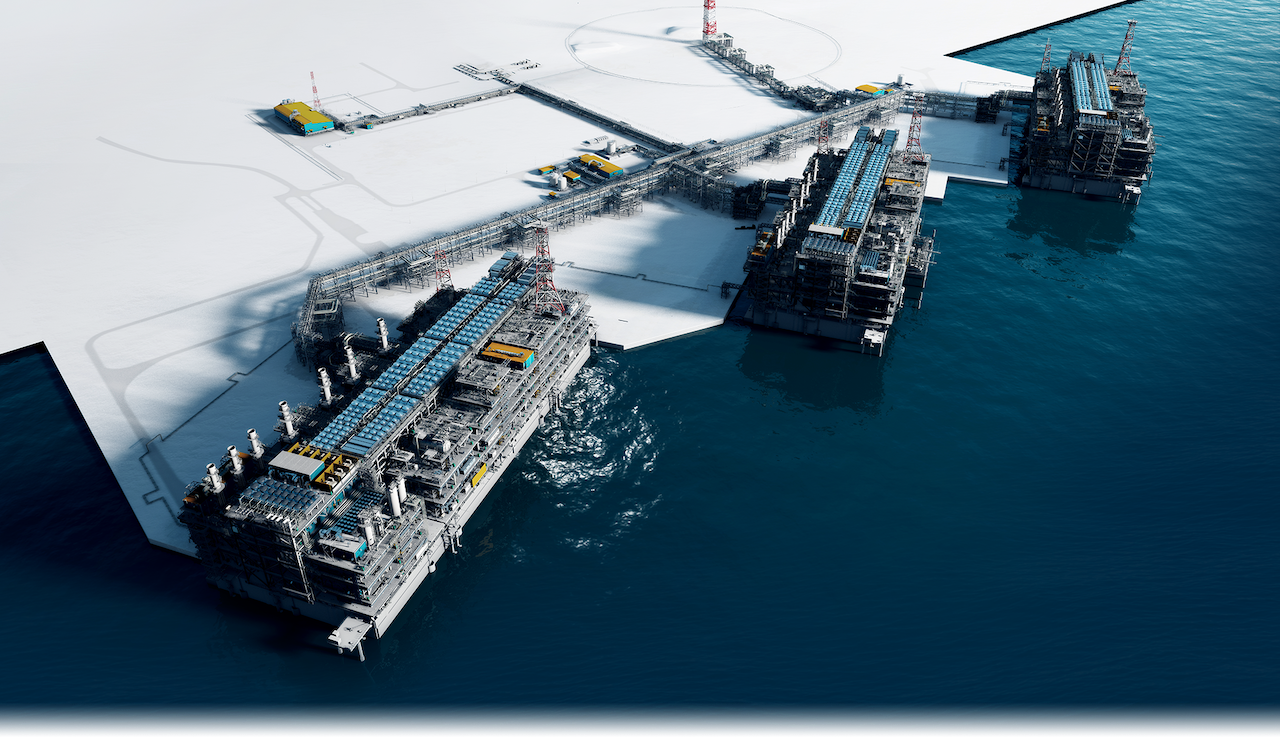
US Sanctions Hamper Russia’s LNG Strategy in the Arctic
Publication: Eurasia Daily Monitor Volume: 21 Issue: 2
By:

In late December 2023, foreign investors for Russia’s Arctic LNG-2 project voiced their intentions to pull out from the initiative (Kommersant.ru, December 25, 2023). The development project on the Gydan Peninsula was designed to transform Russia into a central global exporter of liquid natural gas (LNG), bringing its share from 8 to 20 percent sometime between 2030 and 2035. The stakeholders in the project (each with a 10-percent stake) include France’s TotalEnergies, China National Petroleum Corporation, China National Offshore Corporation, Japan’s Mitsui, and Japan Oil, Gas, and Metals and Energy National Corporation. In early November, the United States introduced sanctions targeting this project, forcing these entities to reconsider their participation (Vedomosti.ru, December 25, 2023). As a result, Russia faces several strategic hurdles in implementing the Arctic LNG-2 project, and it remains unclear how Moscow will resolve these issues.
Russian officials responded almost immediately to the new developments. In an interview with television channel Russia-24, Russian Deputy Prime Minister Alexander Novak continued the narrative on “successfully overcoming international sanctions” and lamented the illegitimacy of US sanctions against the Arctic LNG-2 project. He accused the United States of “unfair competition” and “lobbying for its own interests” by creating an environment that “makes other countries purchase their [LNG] products, not allowing other countries to develop their own production” (Smotrim.ru, December 27, 2023). Maria Zakharova, director of the Information and Press Department of the Russian Foreign Ministry, focused her response on “Washington’s detrimental role for global economic security.” She claimed that the United States is “pursuing its own interests by destroying competition [and] destroying global energy security.” Zakharova also stated that Russia and China “will continue developing their partnership in the realm of energy ties despite the sanctions” (1prime.ru,December 27, 2023). This statement was particularly significant, given that Chinese investors also opted to freeze their participation in Arctic LNG-2 (Lenta.ru, December 26, 2023). Official Kremlin sources refrained from any public comments on the subject (Kommersant.ru, December 25, 2023).
The US sanctions against Arctic LNG-2 and the subsequent reaction of its foreign stakeholders seem to have surprised the Kremlin. At the start of its full-scale invasion of Ukraine in February 2022, Moscow was under the impression that Western sanctions would not be leveled against its major energy projects. Russian officials are now realizing the fallacy of this assumption.
With foreign investors turning away, Russia faces two primary operational issues in implementing Arctic LNG-2 as well as a menacing strategic dilemma. First, following the introduction of Western economic sanctions in 2022, the overall costs for completion of the development project grew by 17 percent, reaching $25 billion. Russia hoped to compensate for the difference between original estimates and post-2022 costs by obtaining financing from foreign partners. Under the new circumstances, it appears that Russian investors, including Novatek, Sberbank, Gazprombank, VEB.RF, and Otkrytie FC Bank, will have to cover the inflated expenses (Kommersant.ru, June 26, 2023).
Second, the lack of support from foreign partners will hamper the transportation and delivery of Russia’s LNG supplies. According to Russian sources, to transport LNG from the Arctic LNG-2 project to global customers, Russia needs more Arc7 Ice-Class LNG tankers. Three factors further complicate the situation. First, the United States introduced sanctions against the Saam Floating Storage Unit (FSU; based in Kamchatka) and Koryak FSU (based in Murmansk) disallowing the transportation of LNG from Arc7 tankers on conventional vessels. Second, the South Korean shipbuilding company that was supposed to build more LNG carriers for Russia canceled the contract due to challenges in receiving payment from Moscow following the introduction of sanctions. Third, sanctions have also complicated the construction of more Arc7 tankers at other South Korean and Chinese shipyards. Thus, one of the only solutions for Russia would be to turn to secondary markets, which could lead to a doubling in production costs. As another possible solution, Russian experts have suggested that a certain number of Arc7 tankers could be taken from the Yamal LNG project (not affected by sanctions) to cover the needs of Arctic LNG-2 (Neftegaz.ru, December 25, 2023).
Russian sources have shared some preliminary assessments on the potential impact of the problems with the Arctic LNG-2 project. One anonymous source, reportedly well-informed about the situation, negatively assessed prospects of exporting LNG to Japan (expected to become one of the project’s primary customers). The source argued that, while Japan will continue buying LNG from the Sakhalin-2 and Yamal projects, Arctic LNG-2 is unlikely to sell any quantities to Japanese consumers (Rcc.ru, December 26, 2023). Sergey Kondratiev from the Institute of Energy and Finances did not doubt Novatek’s ability to launch the project and find solutions for exporting LNG supplies. He noted, however, that sanctions-related risks will negatively impact foreign partners’ willingness to engage in long-term deals. As a result, Russia will be compelled to sell LNG on the spot market at a heavily discounted rate (Kommersant.ru, December 21, 2023). Analysts from BCS Financial expressed confidence that, over the long term, Novatek will be able to overcome sanctions-related technological and logistical issues, though it will likely take several years. Undoubtedly, this delay will hurt Novatek’s profitability and dissuade foreign investors from making long-term commitments (Bcs-express.ru,December 27, 2023).
The situation with Arctic LNG-2 may be a harbinger of much greater challenges for Russia’s ambitions in the Arctic. US and other Western sanctions have yet to demonstrate their full capacity. Experts have argued that, if the Arctic LNG-2 project does not materialize, Russia could become chronically disadvantaged in competition with other actors in the Arctic and global LNG markets (Ng.ru, December 11, 2023).



